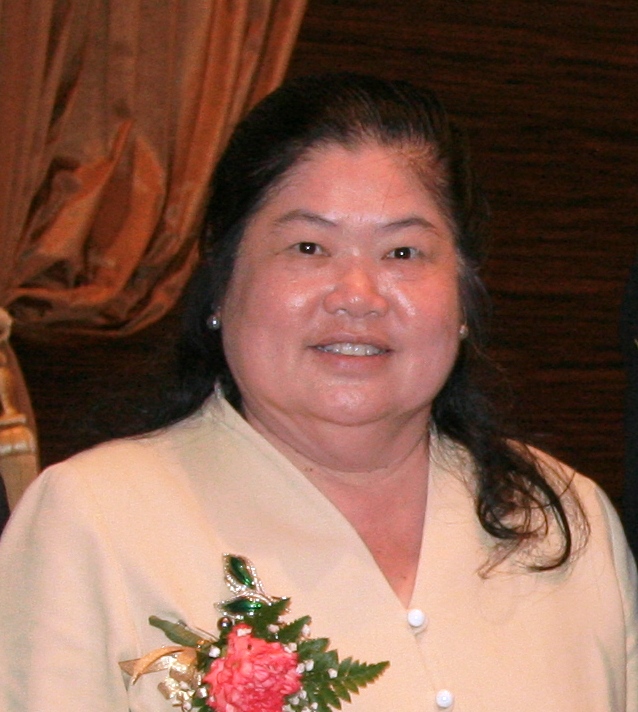Home > Press > Curcumin shows anti-colon cancer activity, NANOTEC researcher say
 |
| Dr.Ubonthip |
Abstract:
Researchers at National Nanotechnology Center (NANOTEC) have discovered that using a compound consisting of curcuminoids-succinate prodrugs can improve stability in phosphate buffer, releases curcumin derivatives in human plasma, and shows anti-colon cancer activities.
Curcumin shows anti-colon cancer activity, NANOTEC researcher say
Pathumthani, Thailand | Posted on May 18th, 2011"According to Globocan 2002, colon cancer was the third most common malignant disease in Thai males, while it ranked fifth among Thai females" said Dr. Ubonthip Nimmannit, Head of NanoCosme Lab at NANOTEC. "The investigation involving the synthesis of curcuminoids as potential prodrug is of significant importance to local physicians as it suggests that succinylation of curcuminoids is stable and can release the parent curcumin derivatives in human plasma which makes it to be promising candidates for future treatment of colon cancer".
Colon cancers among Thai people are expected to increase, with about 5,000 new cases diagnosed nationwide every year. The contributing factor to this increase is the imbalanced and unhealthy diet including sedentary lifestyles can also contribute to the development of the disease.
Collaborators on this investigation included researchers from Chulalongkorn University. The researchers reported their investigation in a paper published by MDPI Molecules.
####
For more information, please click here
Contacts:
Ramjitti Indaraprasirt
Manager
International Relations Section
NANOTEC
02-564-7100 ext: 6617
Copyright © National Nanotechnology Center (NANOTEC)
If you have a comment, please Contact us.Issuers of news releases, not 7th Wave, Inc. or Nanotechnology Now, are solely responsible for the accuracy of the content.
| Related News Press |
News and information
![]() Researchers develop molecular qubits that communicate at telecom frequencies October 3rd, 2025
Researchers develop molecular qubits that communicate at telecom frequencies October 3rd, 2025
![]() Next-generation quantum communication October 3rd, 2025
Next-generation quantum communication October 3rd, 2025
![]() "Nanoreactor" cage uses visible light for catalytic and ultra-selective cross-cycloadditions October 3rd, 2025
"Nanoreactor" cage uses visible light for catalytic and ultra-selective cross-cycloadditions October 3rd, 2025
Nanomedicine
![]() New molecular technology targets tumors and simultaneously silences two ‘undruggable’ cancer genes August 8th, 2025
New molecular technology targets tumors and simultaneously silences two ‘undruggable’ cancer genes August 8th, 2025
![]() New imaging approach transforms study of bacterial biofilms August 8th, 2025
New imaging approach transforms study of bacterial biofilms August 8th, 2025
![]() Cambridge chemists discover simple way to build bigger molecules – one carbon at a time June 6th, 2025
Cambridge chemists discover simple way to build bigger molecules – one carbon at a time June 6th, 2025
![]() Electrifying results shed light on graphene foam as a potential material for lab grown cartilage June 6th, 2025
Electrifying results shed light on graphene foam as a potential material for lab grown cartilage June 6th, 2025
Discoveries
![]() Researchers develop molecular qubits that communicate at telecom frequencies October 3rd, 2025
Researchers develop molecular qubits that communicate at telecom frequencies October 3rd, 2025
![]() Next-generation quantum communication October 3rd, 2025
Next-generation quantum communication October 3rd, 2025
![]() "Nanoreactor" cage uses visible light for catalytic and ultra-selective cross-cycloadditions October 3rd, 2025
"Nanoreactor" cage uses visible light for catalytic and ultra-selective cross-cycloadditions October 3rd, 2025
Announcements
![]() Rice membrane extracts lithium from brines with greater speed, less waste October 3rd, 2025
Rice membrane extracts lithium from brines with greater speed, less waste October 3rd, 2025
![]() Researchers develop molecular qubits that communicate at telecom frequencies October 3rd, 2025
Researchers develop molecular qubits that communicate at telecom frequencies October 3rd, 2025
![]() Next-generation quantum communication October 3rd, 2025
Next-generation quantum communication October 3rd, 2025
![]() "Nanoreactor" cage uses visible light for catalytic and ultra-selective cross-cycloadditions October 3rd, 2025
"Nanoreactor" cage uses visible light for catalytic and ultra-selective cross-cycloadditions October 3rd, 2025
Research partnerships
![]() Lab to industry: InSe wafer-scale breakthrough for future electronics August 8th, 2025
Lab to industry: InSe wafer-scale breakthrough for future electronics August 8th, 2025
![]() HKU physicists uncover hidden order in the quantum world through deconfined quantum critical points April 25th, 2025
HKU physicists uncover hidden order in the quantum world through deconfined quantum critical points April 25th, 2025
|
|
||
|
|
||
| The latest news from around the world, FREE | ||
|
|
||
|
|
||
| Premium Products | ||
|
|
||
|
Only the news you want to read!
Learn More |
||
|
|
||
|
Full-service, expert consulting
Learn More |
||
|
|
||








